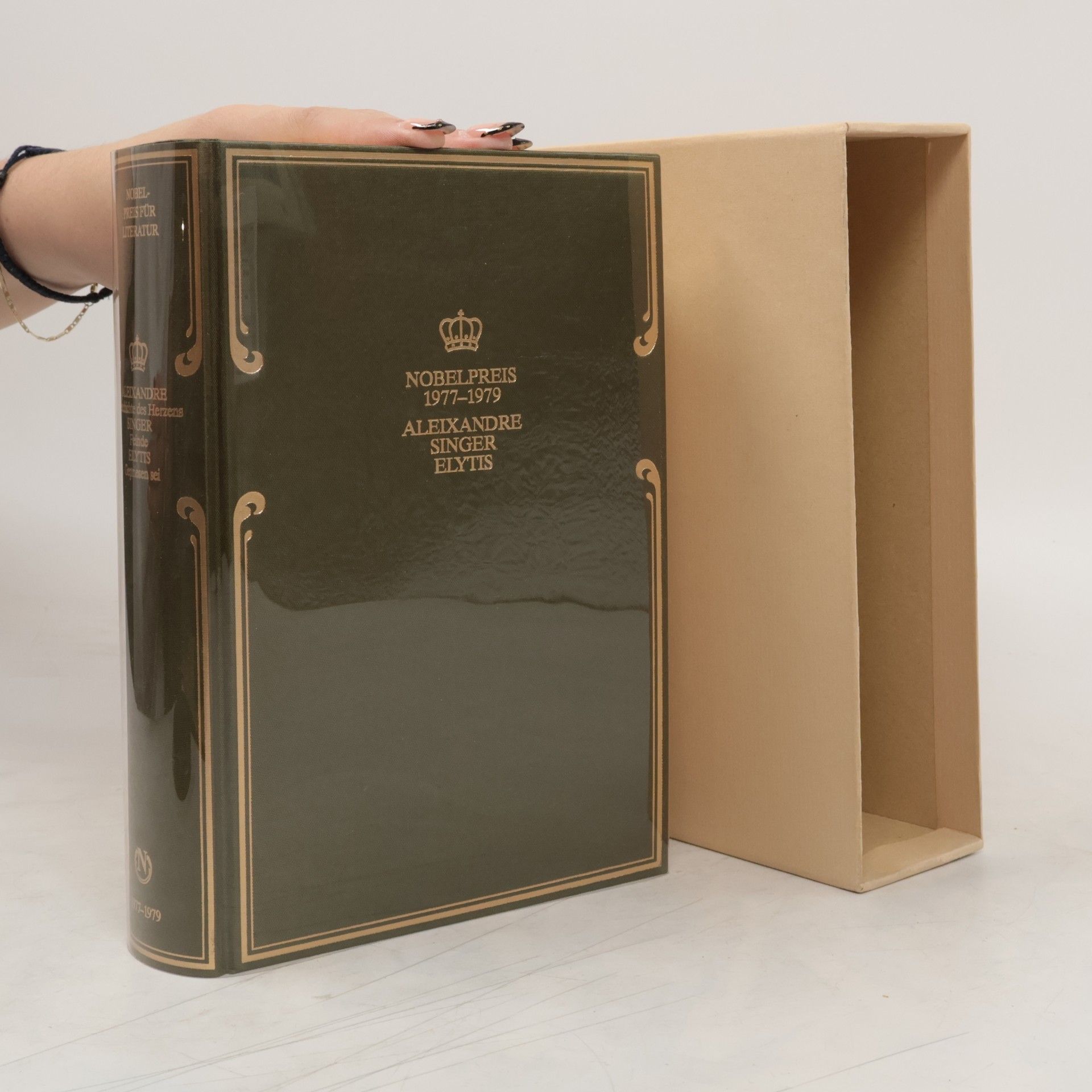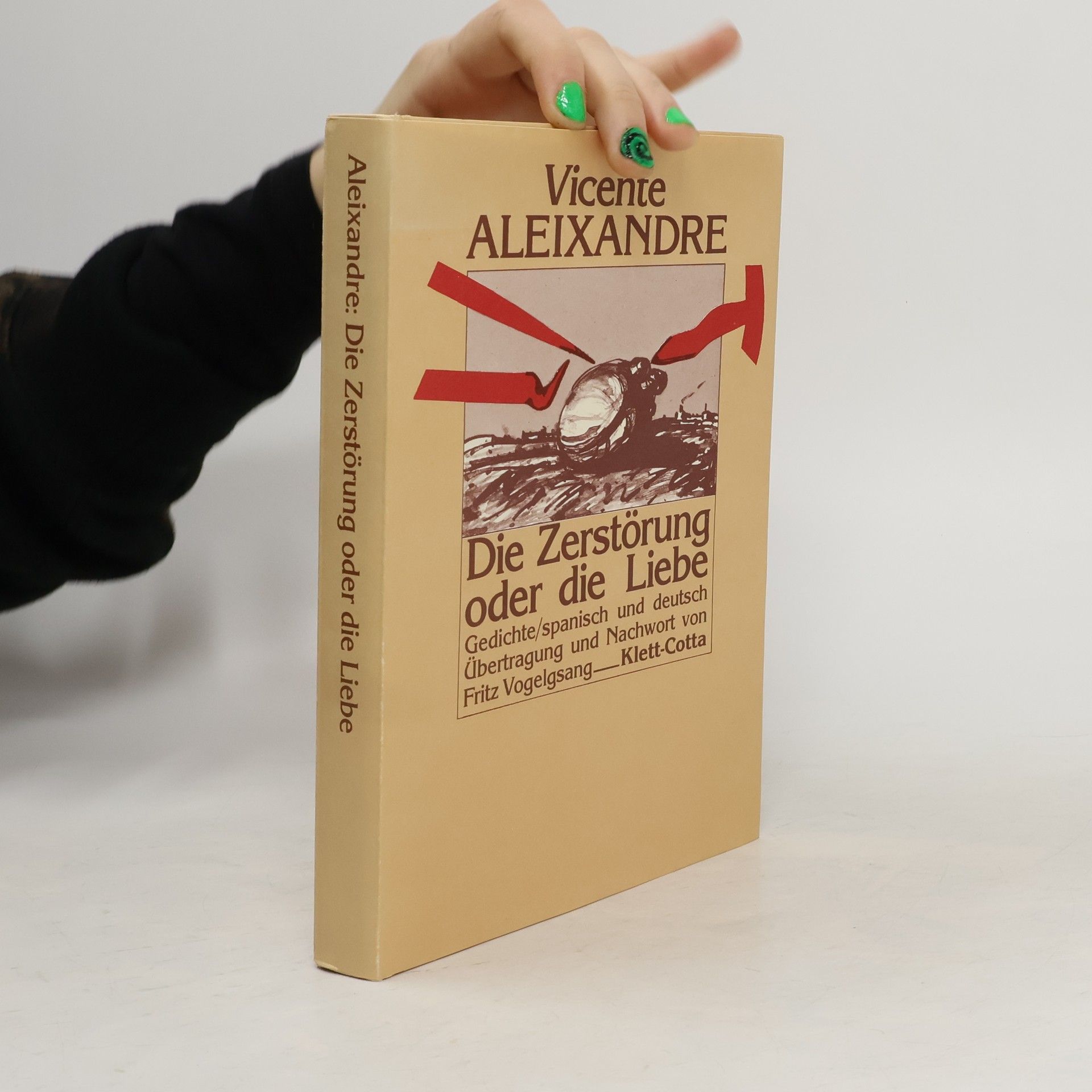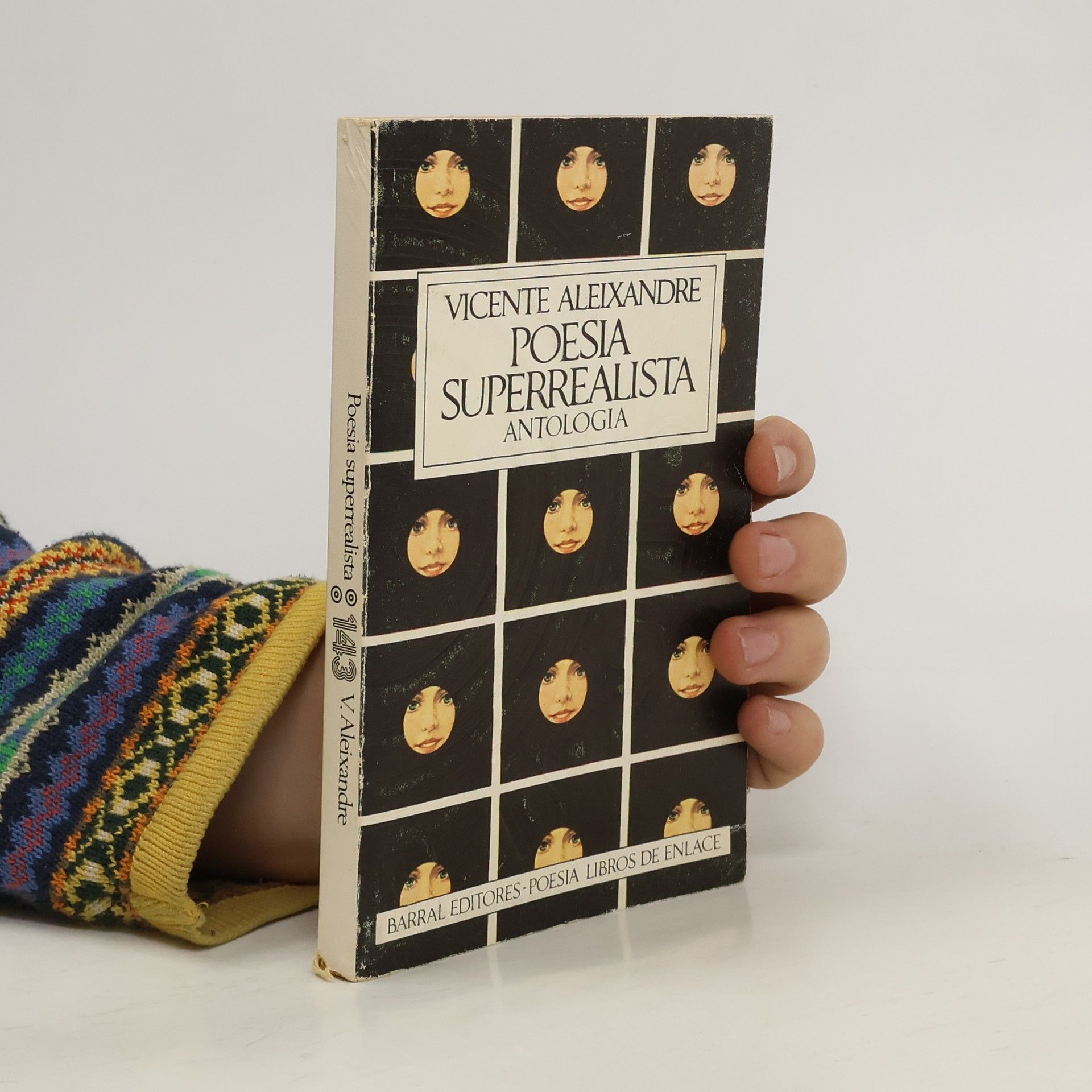Zničenie alebo láska
- 168pages
- 6 heures de lecture
Rozsiahly výber z poézie španielskeho básnika.
Poète espagnol dont l'œuvre a été décrite comme existentialiste, panthéiste mystique et néoromantique. Bien qu'Aleixandre ne se soit pas considéré comme un surréaliste orthodoxe, ses poèmes présentent une imagerie surréaliste et des associations du subconscient freudien. Les thèmes centraux de son écriture explorent l'amour érotique, la solitude, le temps et la mort.






Rozsiahly výber z poézie španielskeho básnika.
La amplitud y complejidad de la obra poética de Vicente Aleixandre (1898-1984) dificulta la labor de ofrecer una buena síntesis de quien fuera merecedor del Premio Nobel de Literatura en 1977. 'Sería arduo precisar - señala en su introducción Leopoldo de Luis, preparador asimismo del volumen - qué Aleixandre ha supuesto mayor enriquecimiento - ¿el surrealista, el neorromántico, el de visión cósmica, el realista?' Esta 'Antología Poética' logra reunir las diversas manifestaciones expresivas de una obra armónica y solidaria.